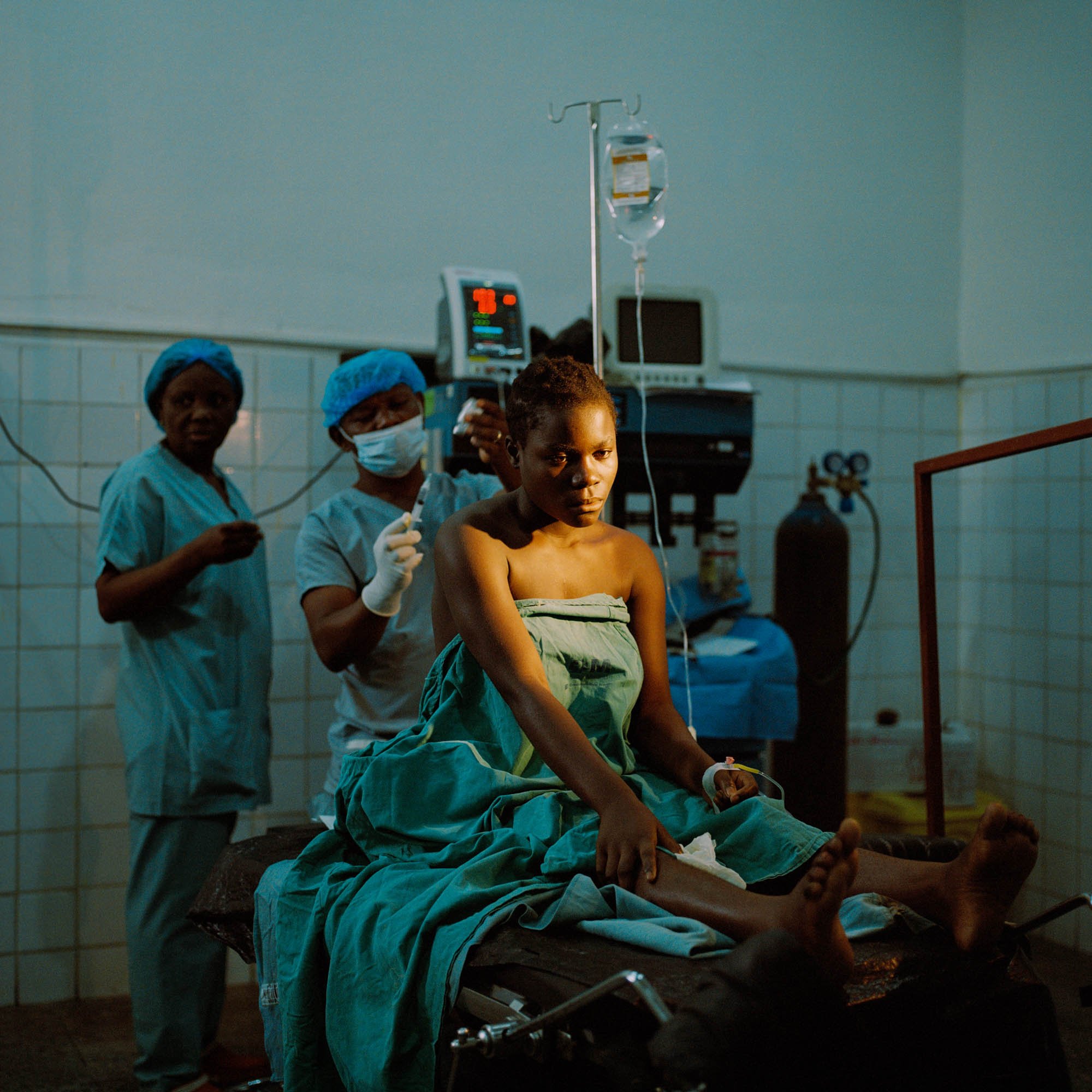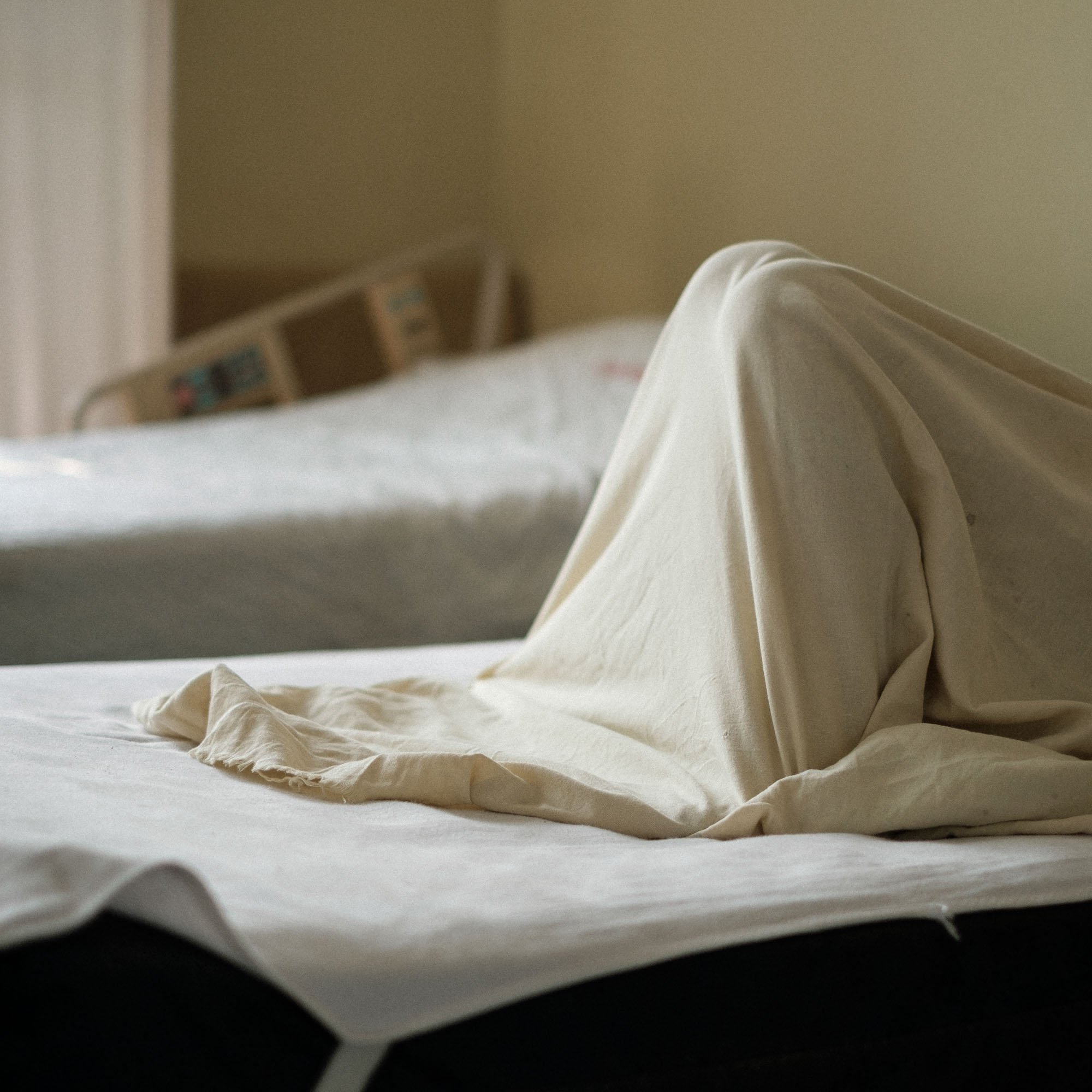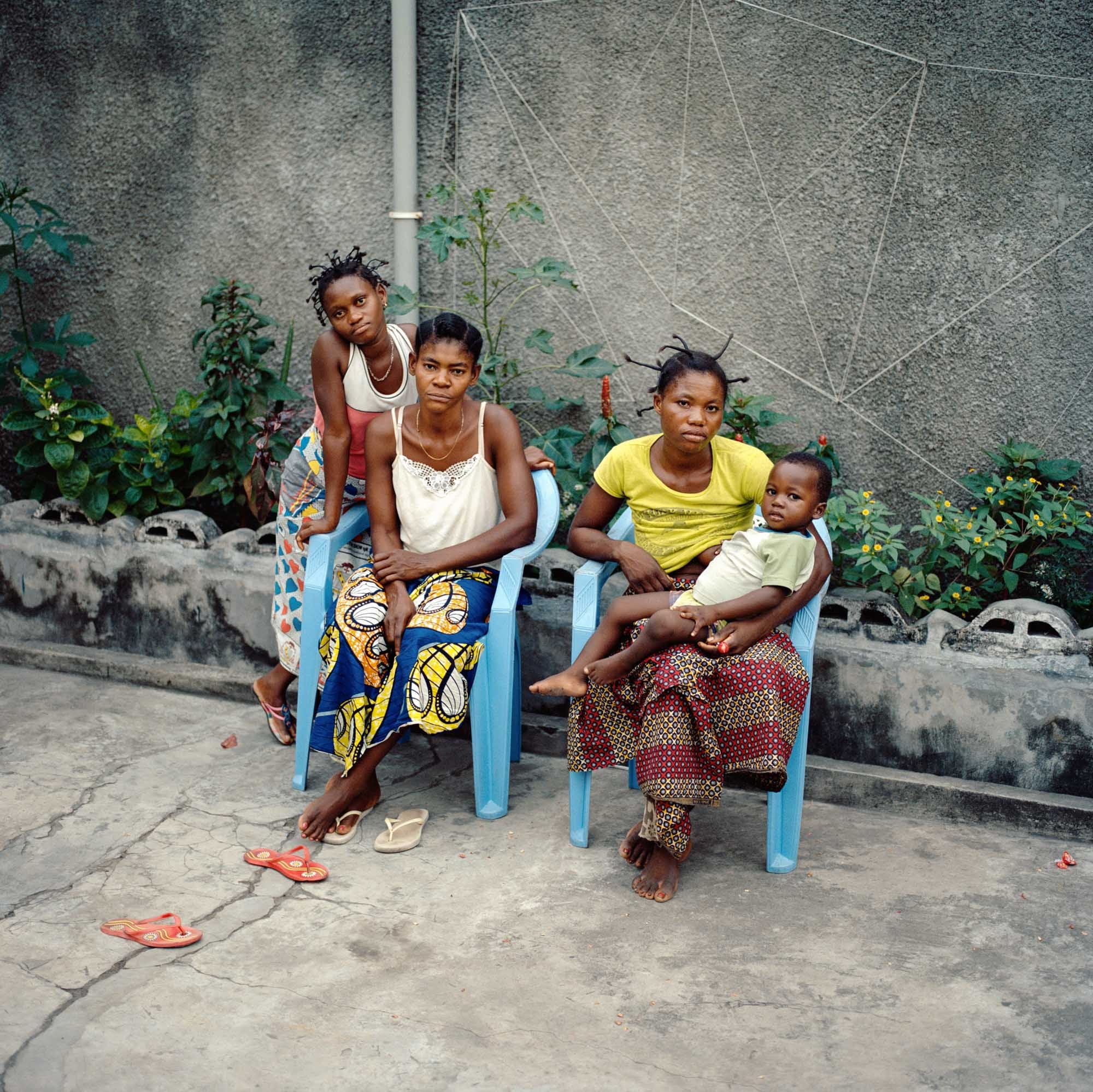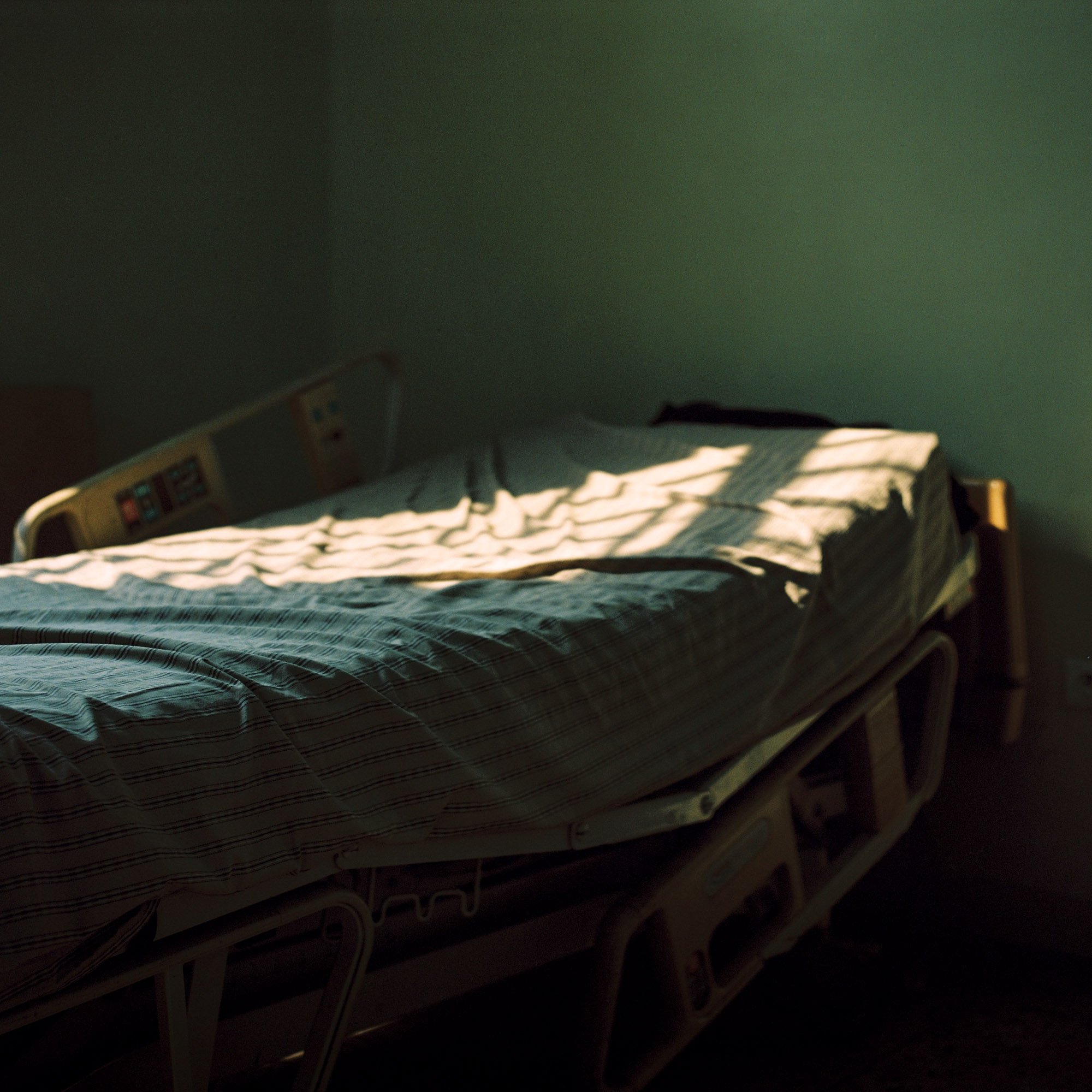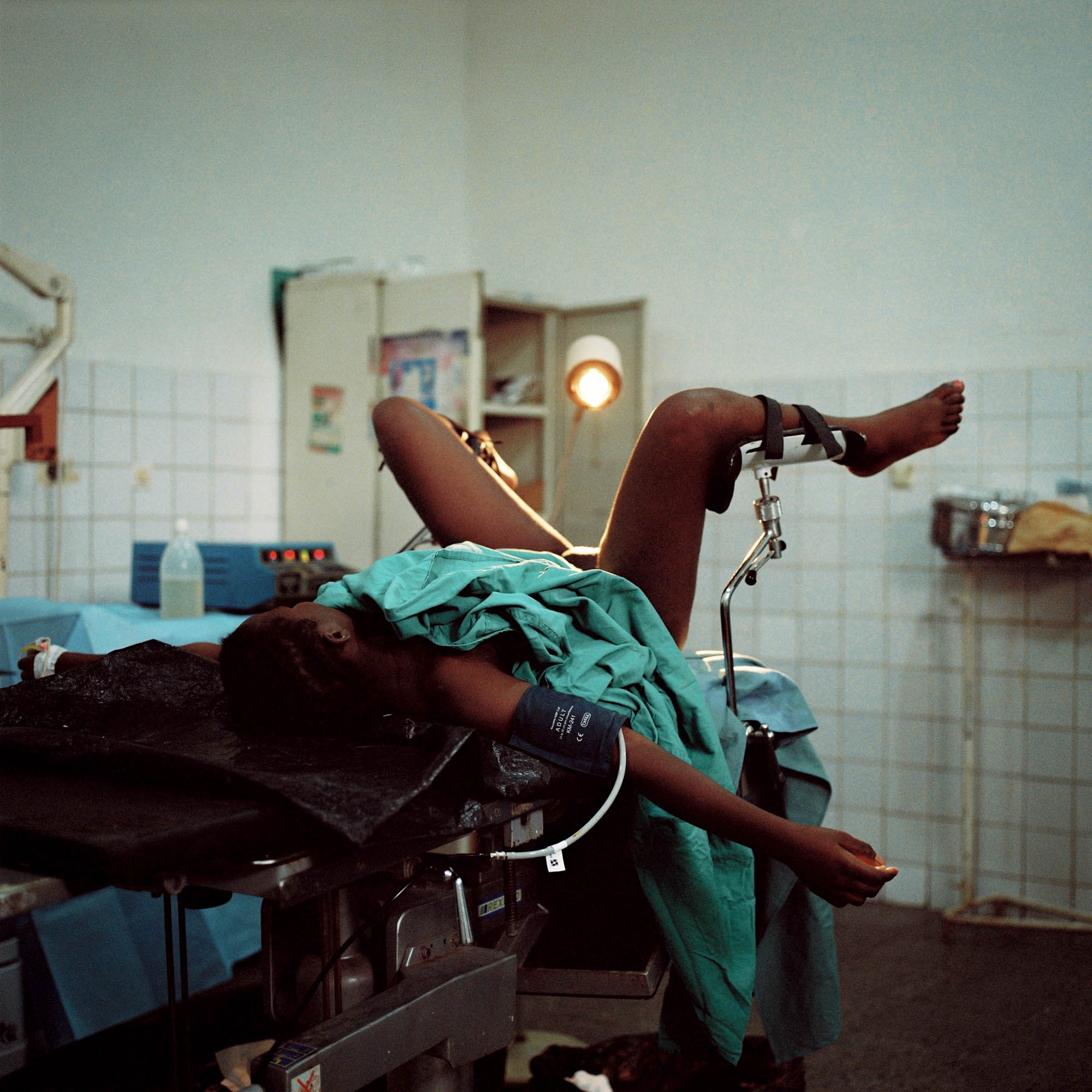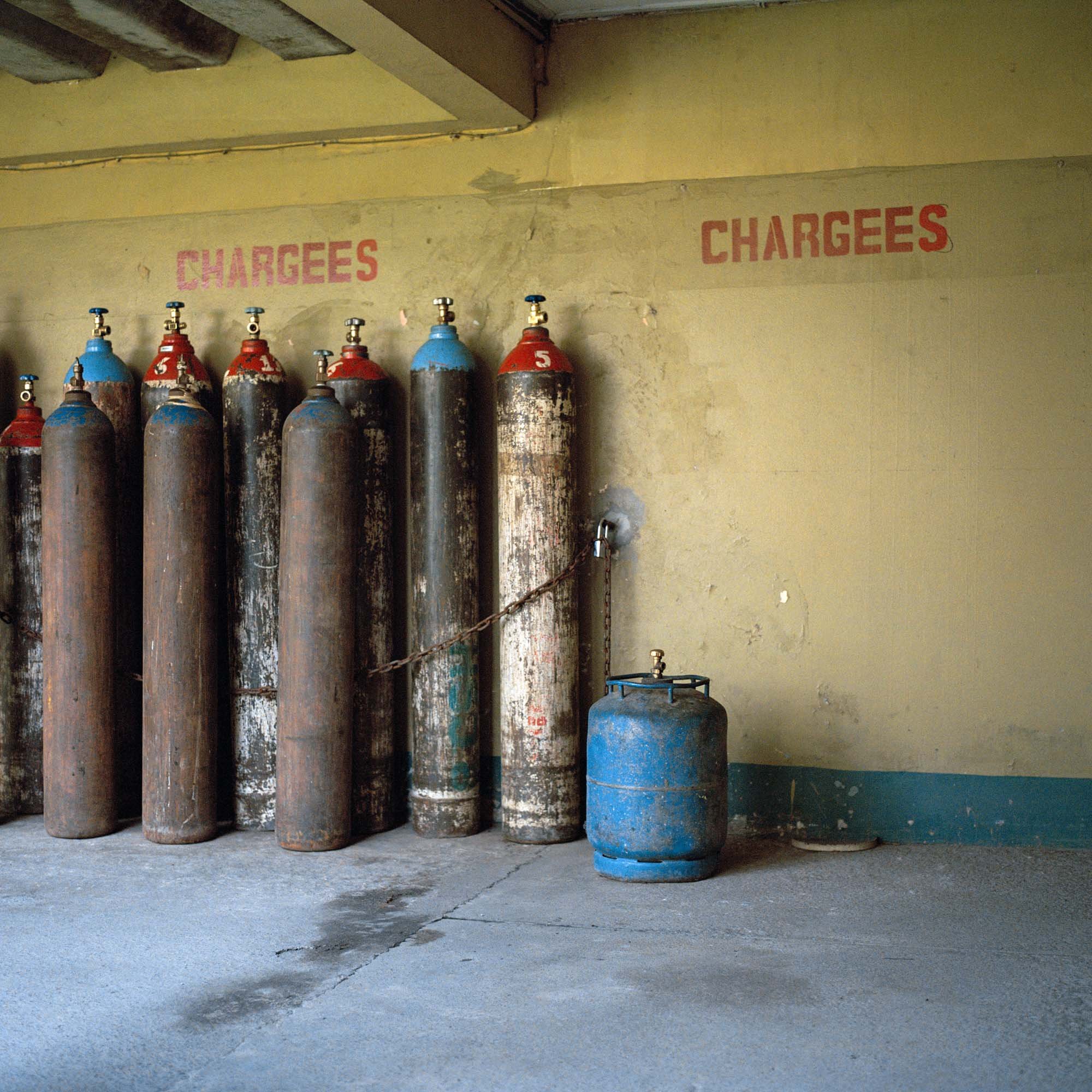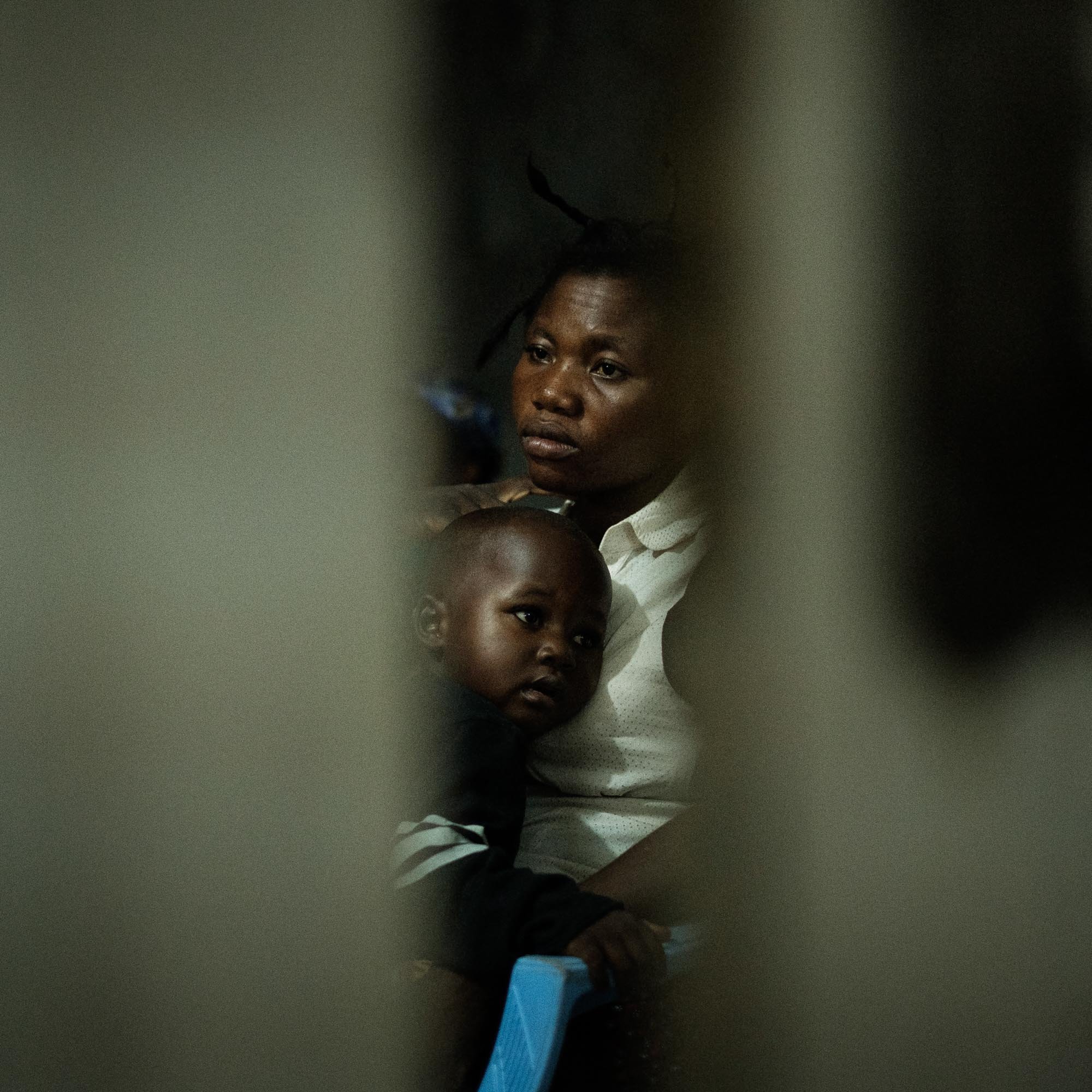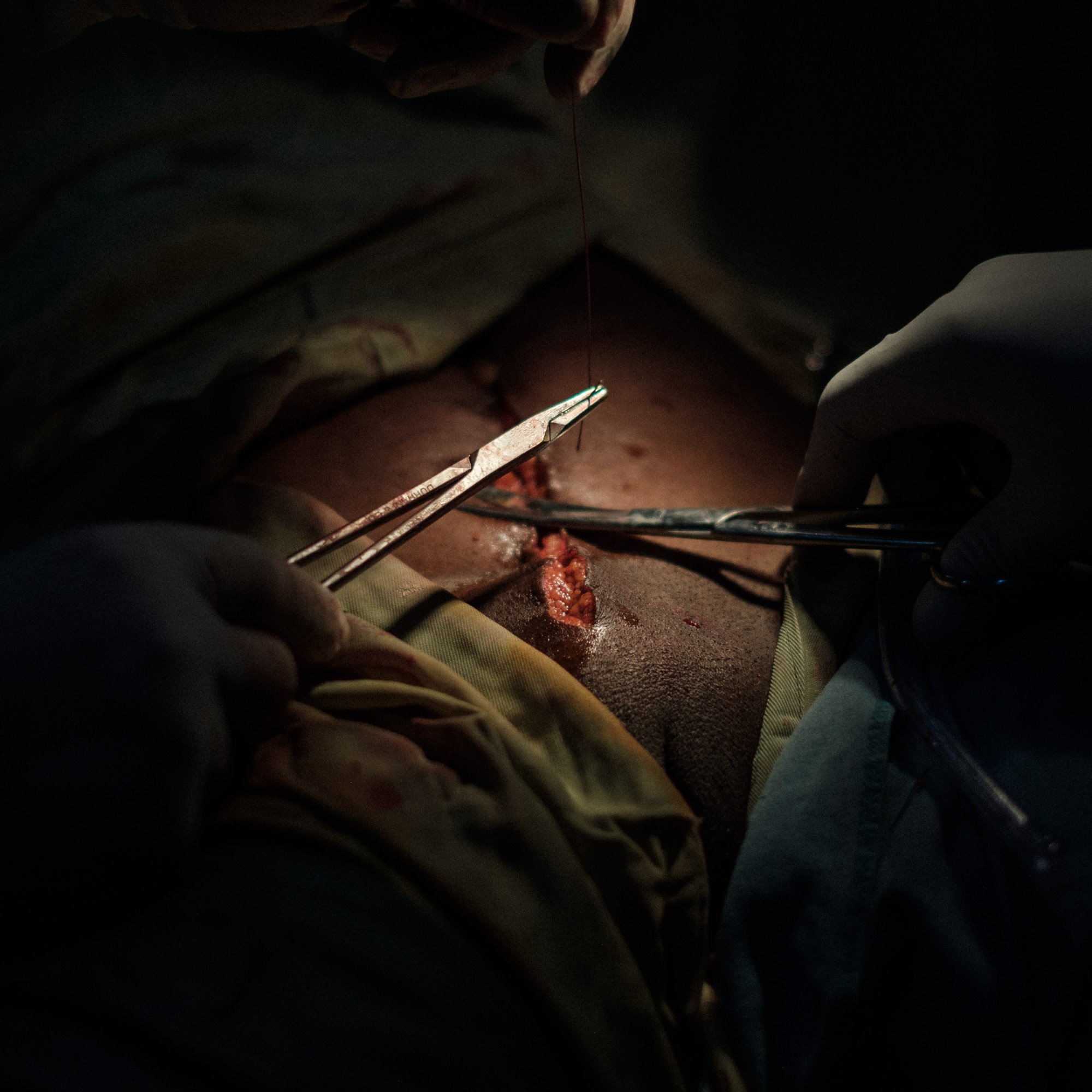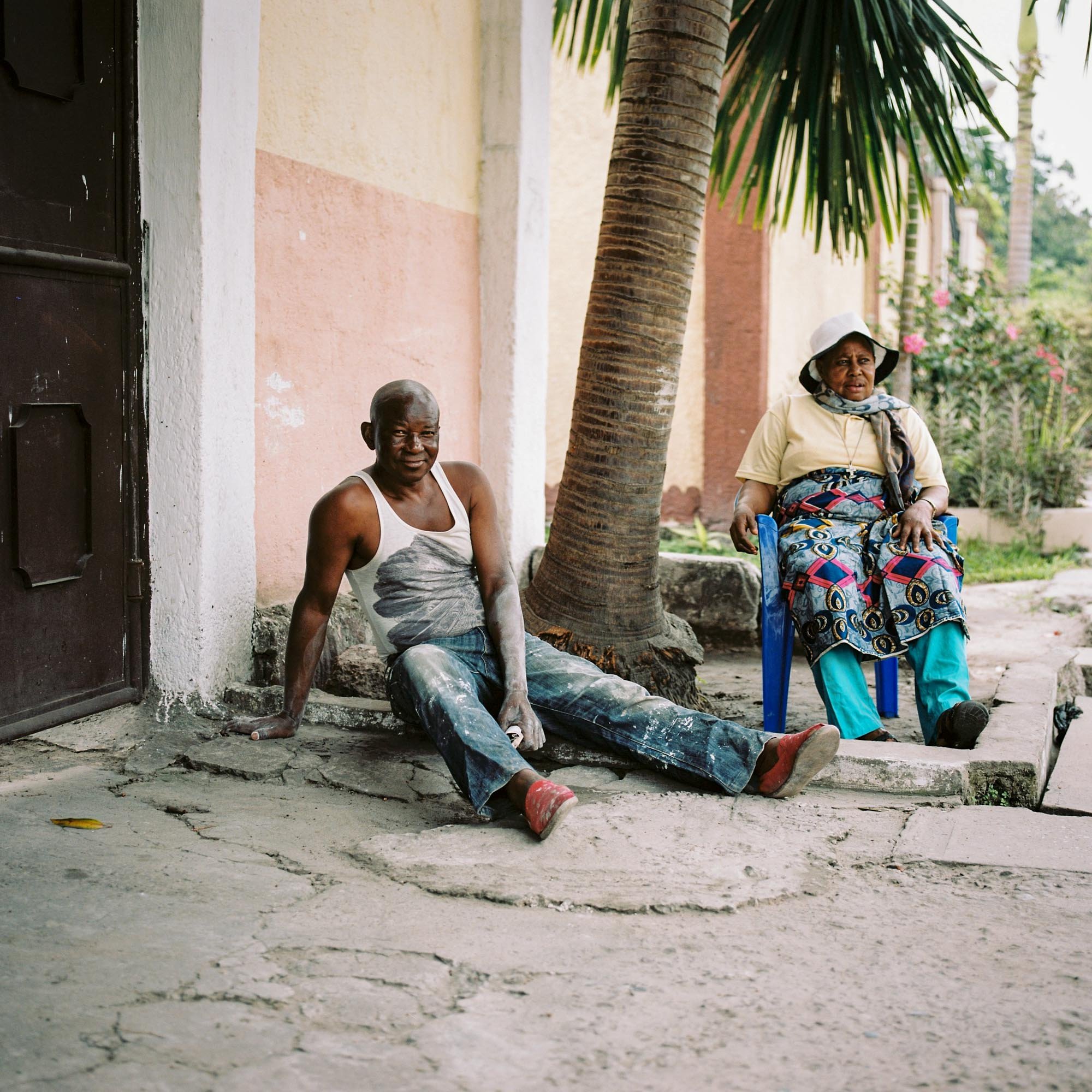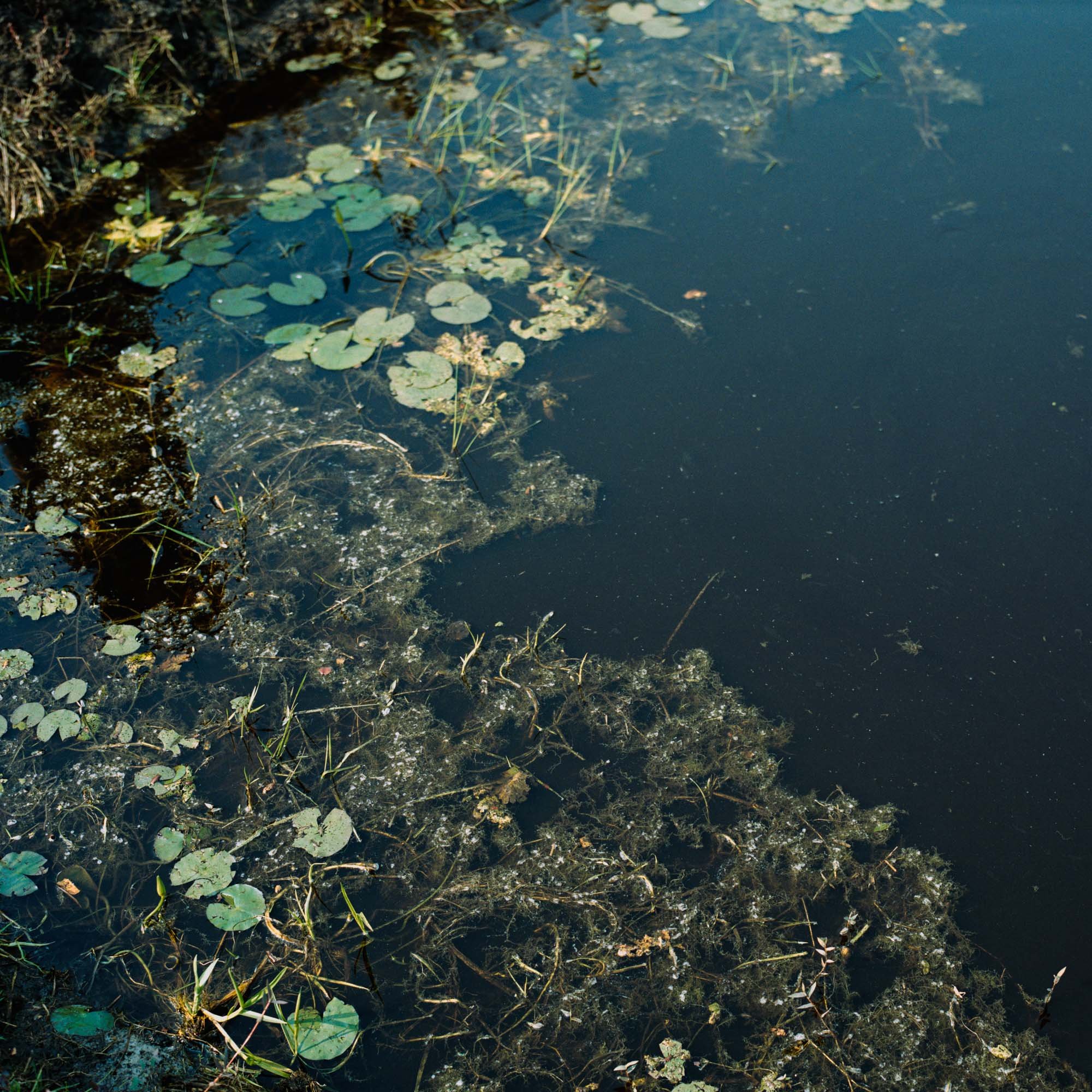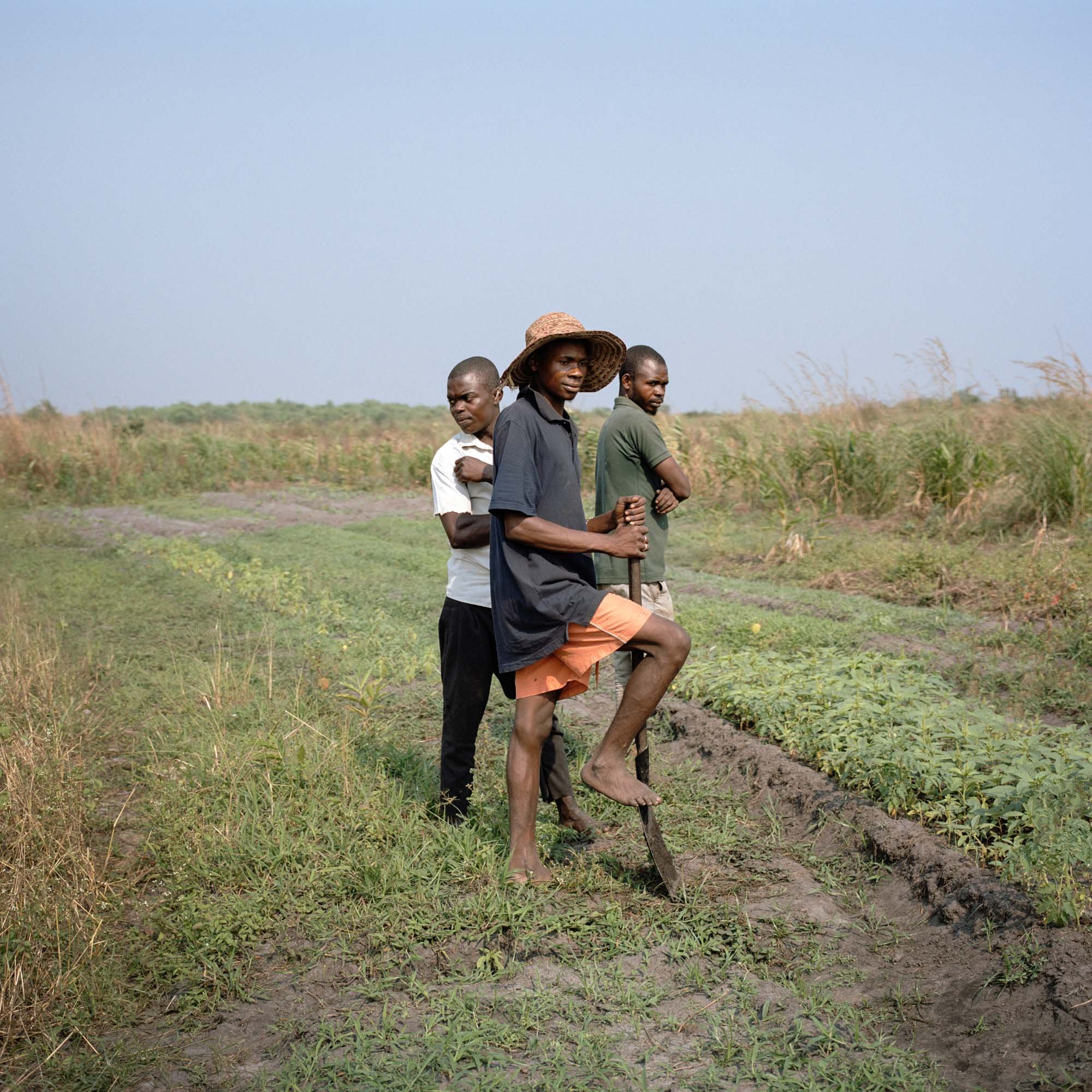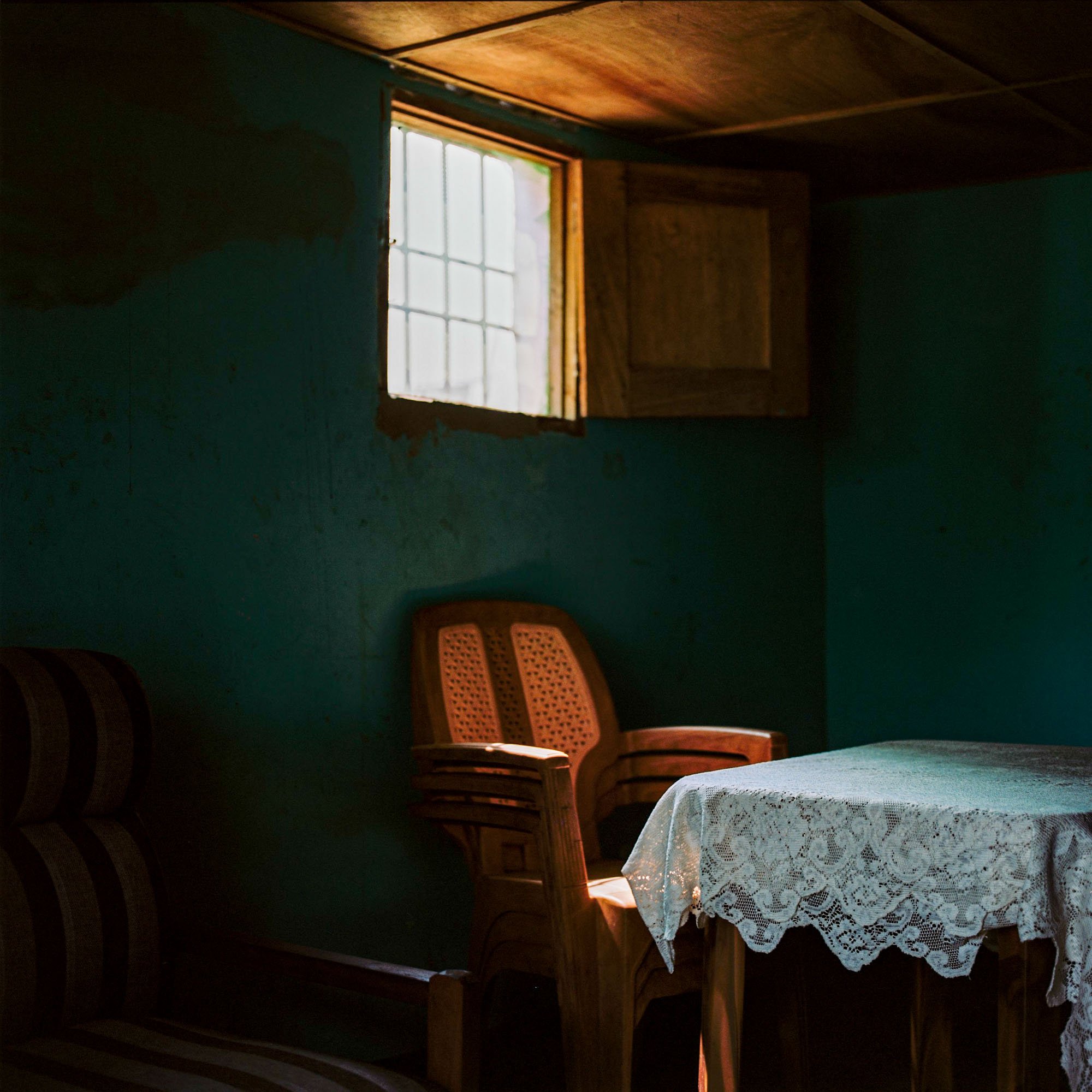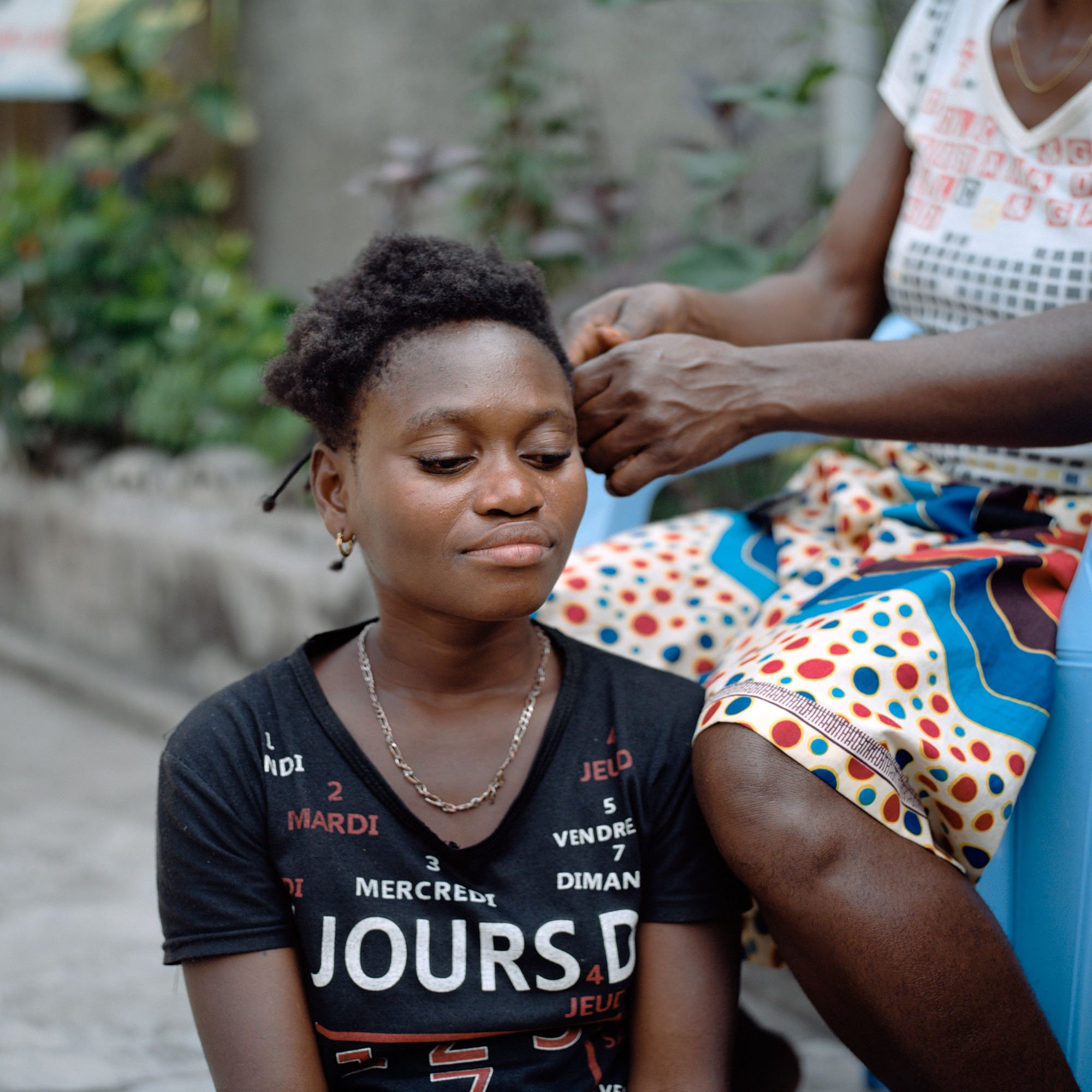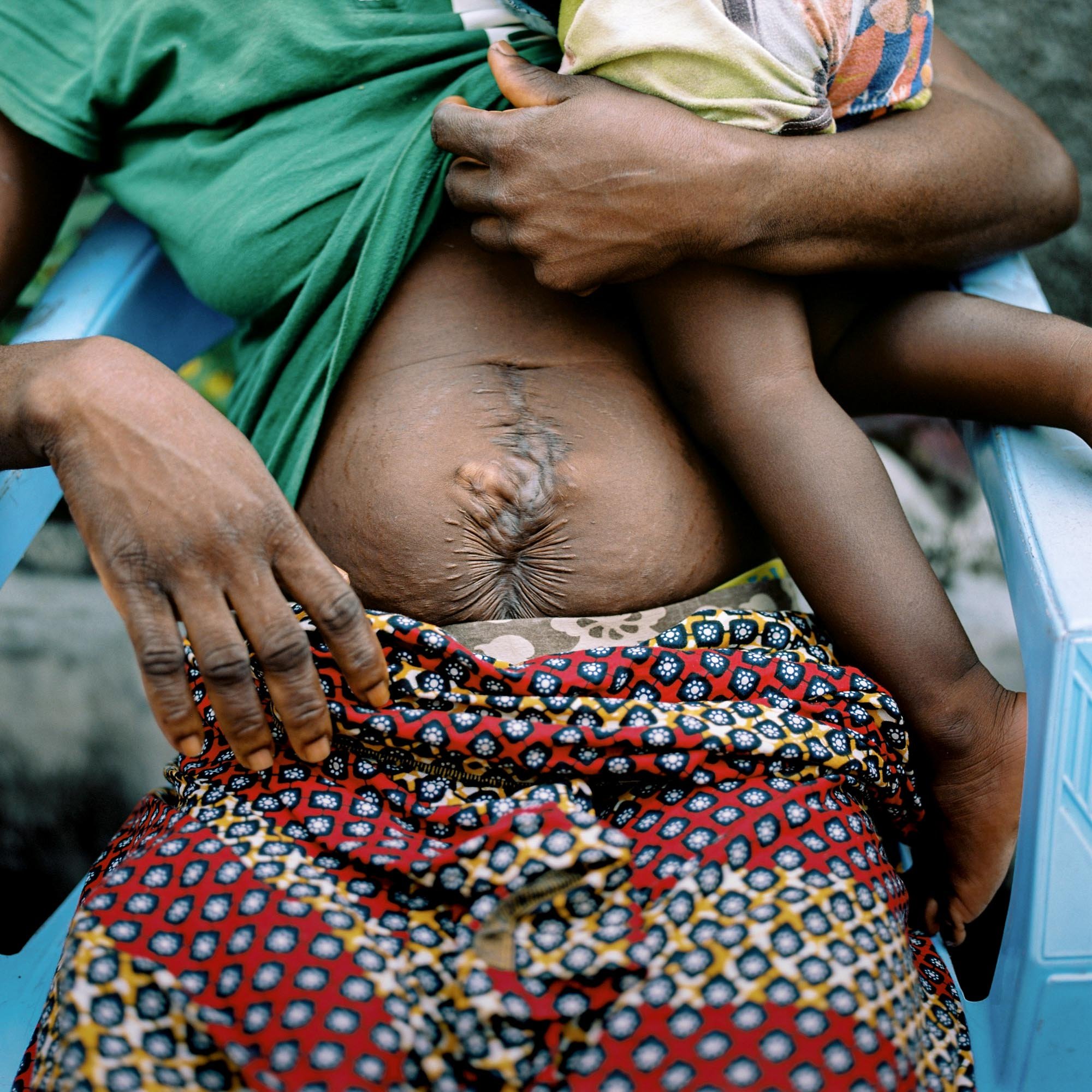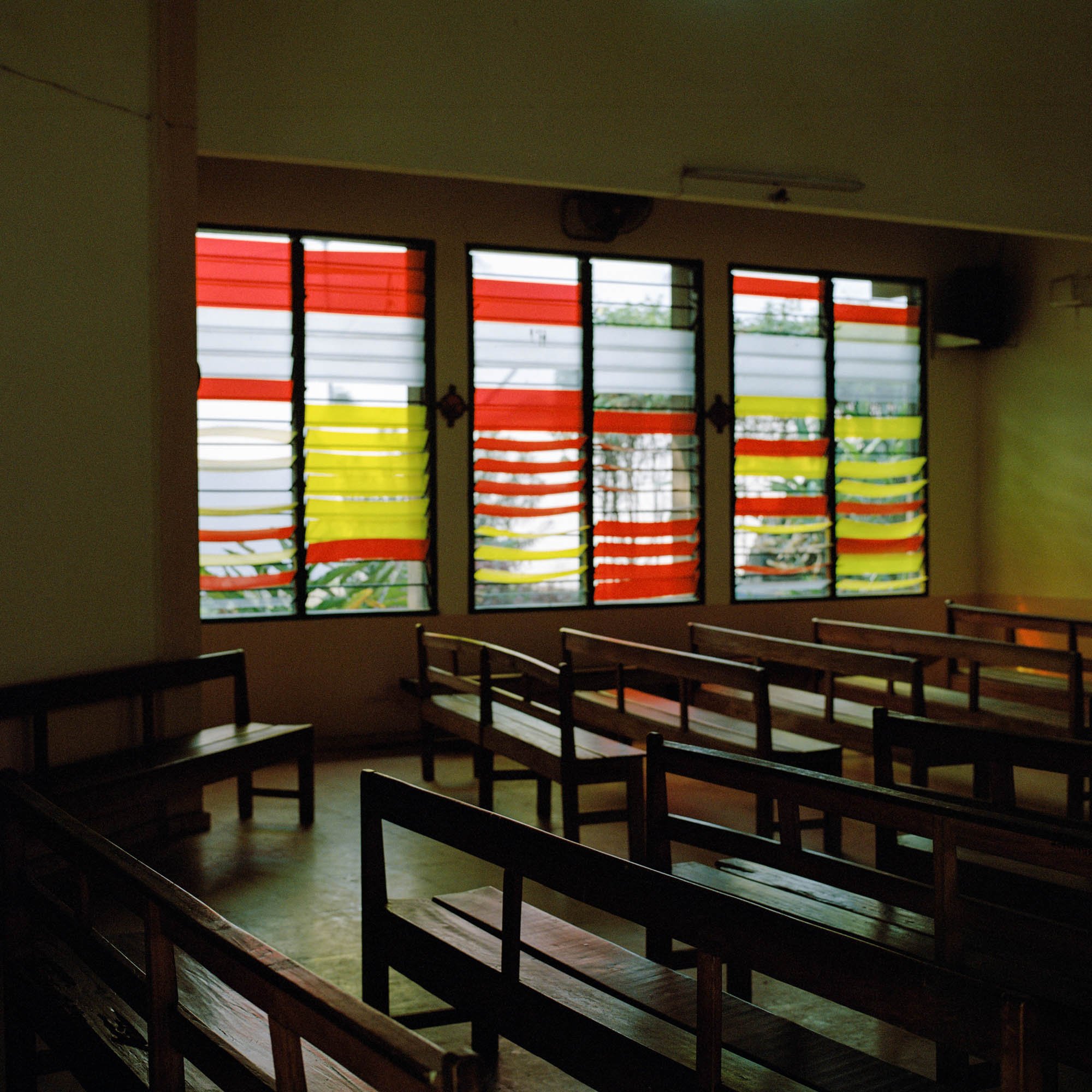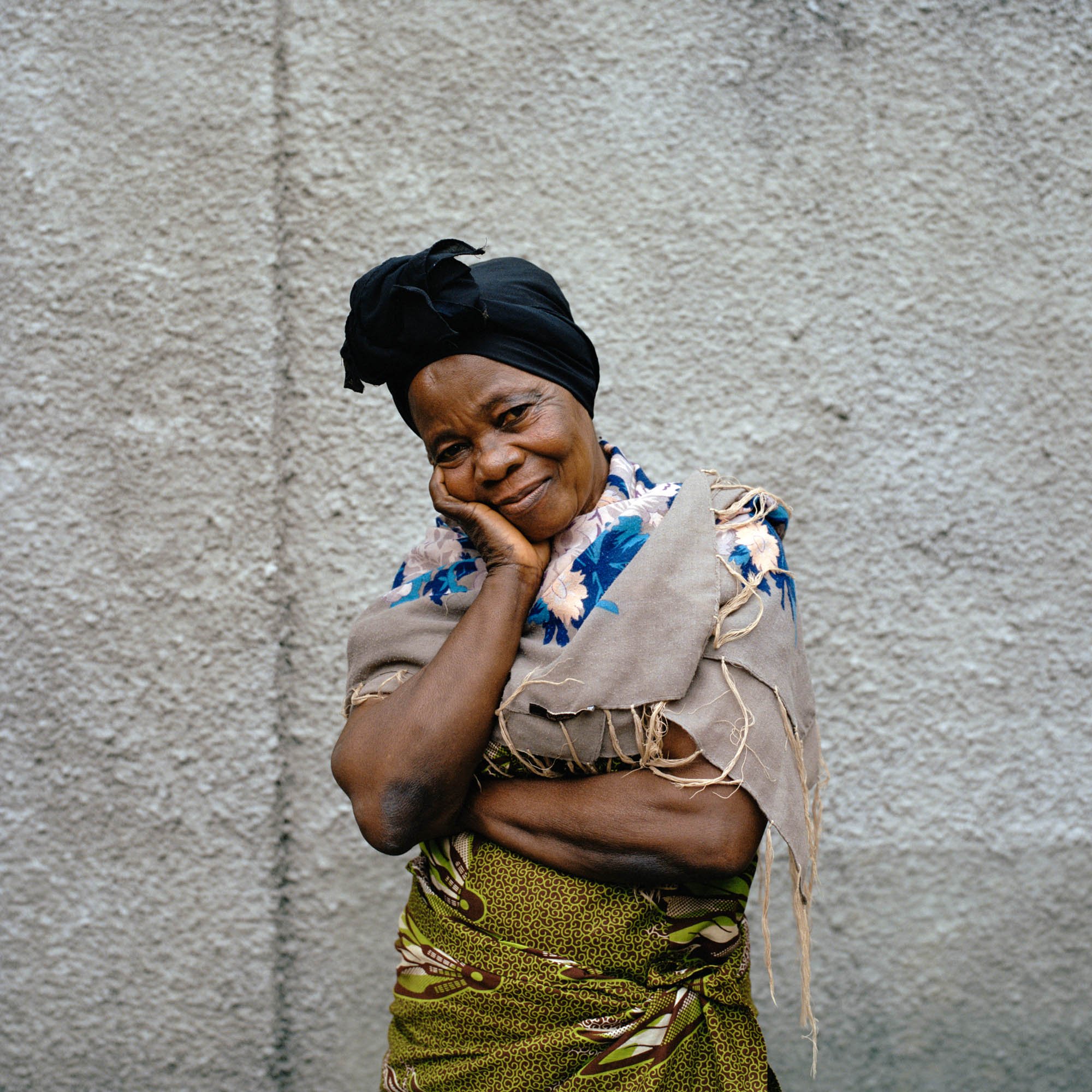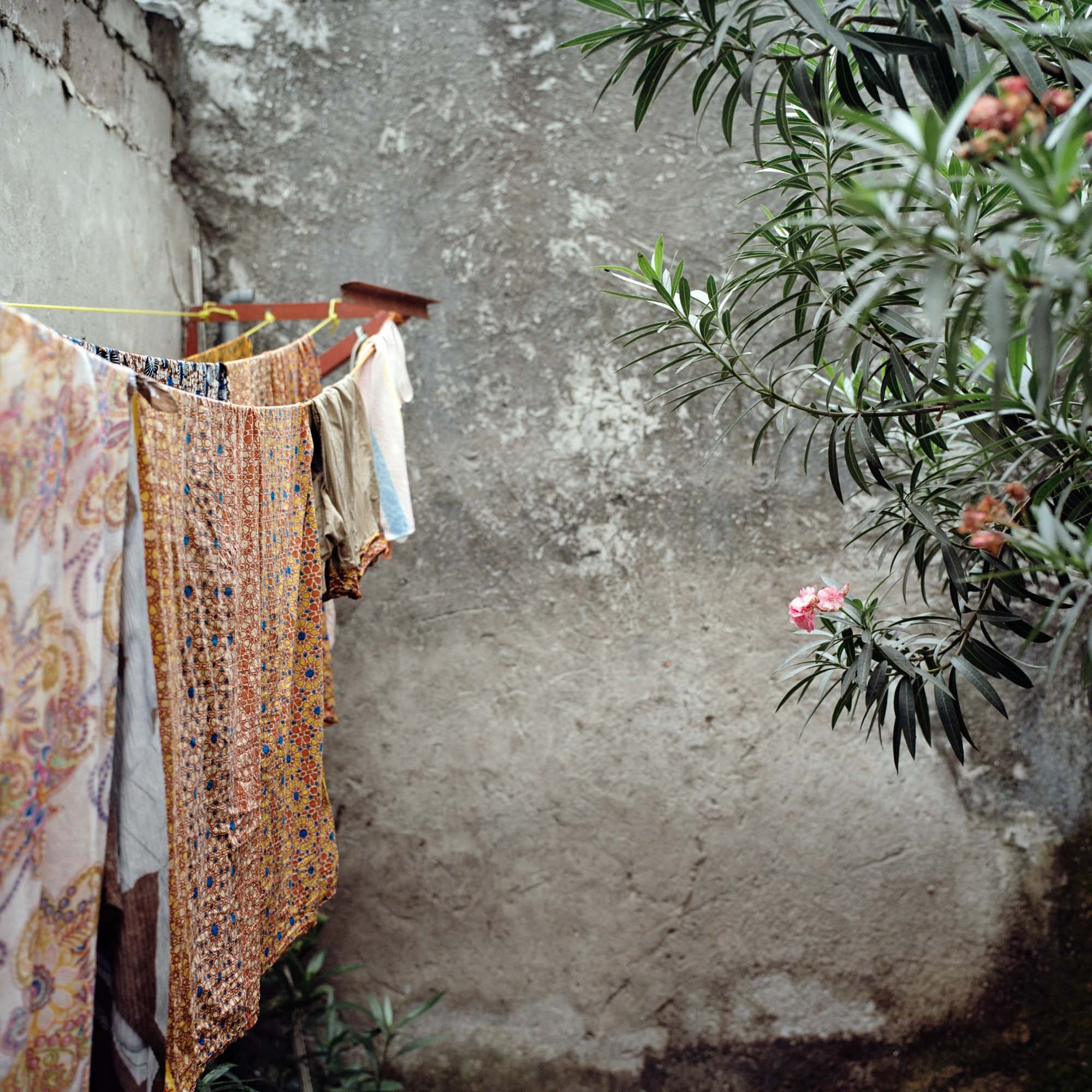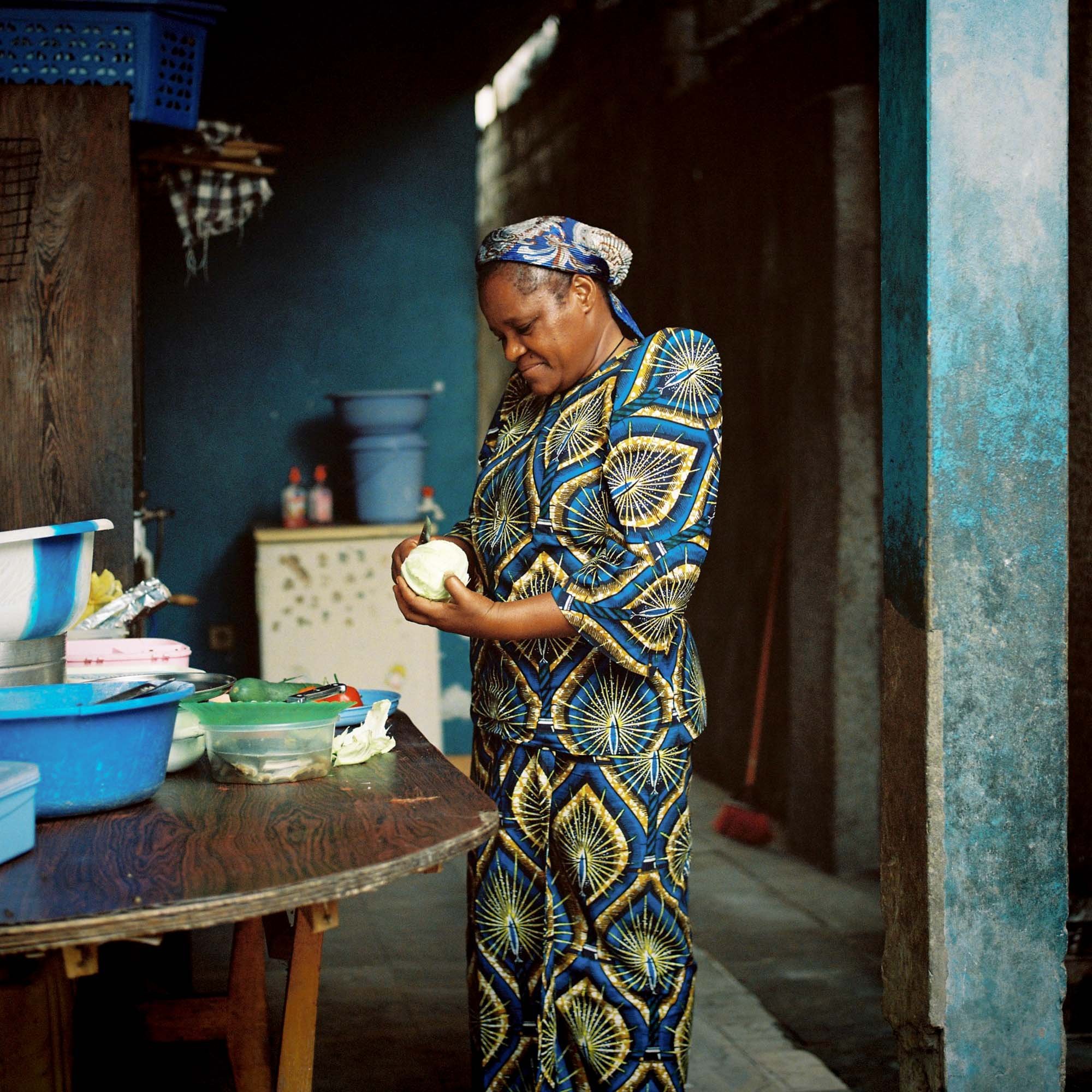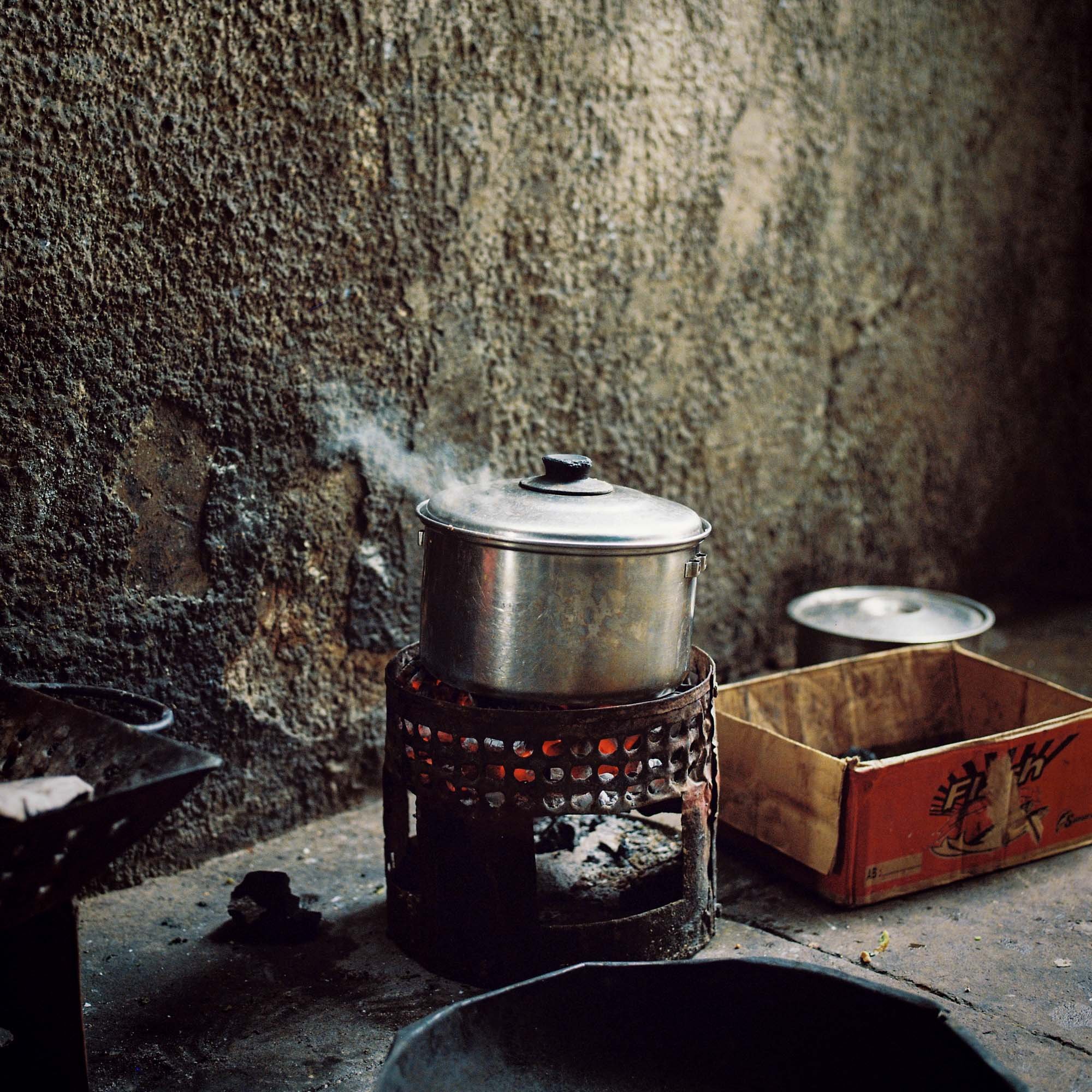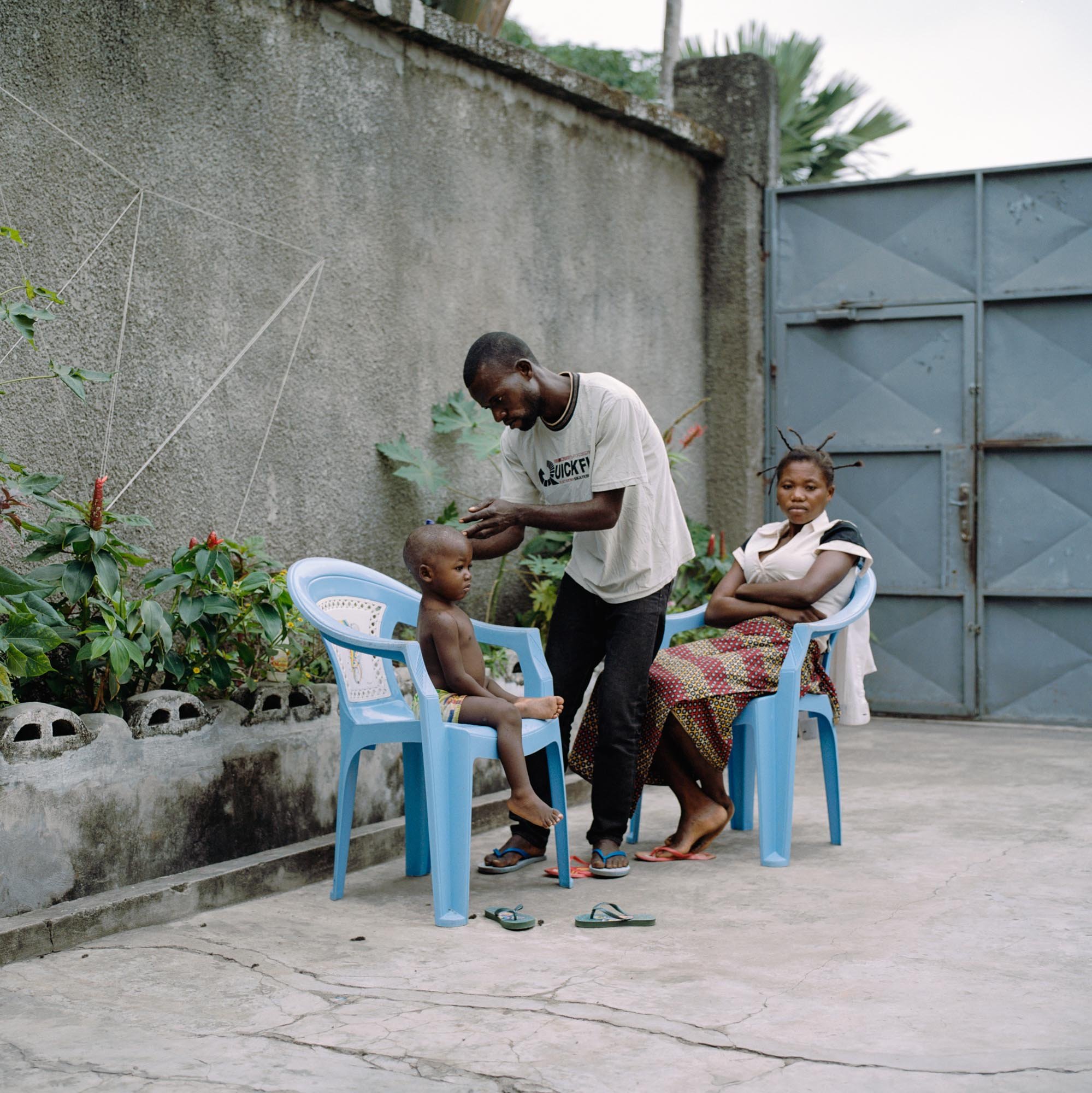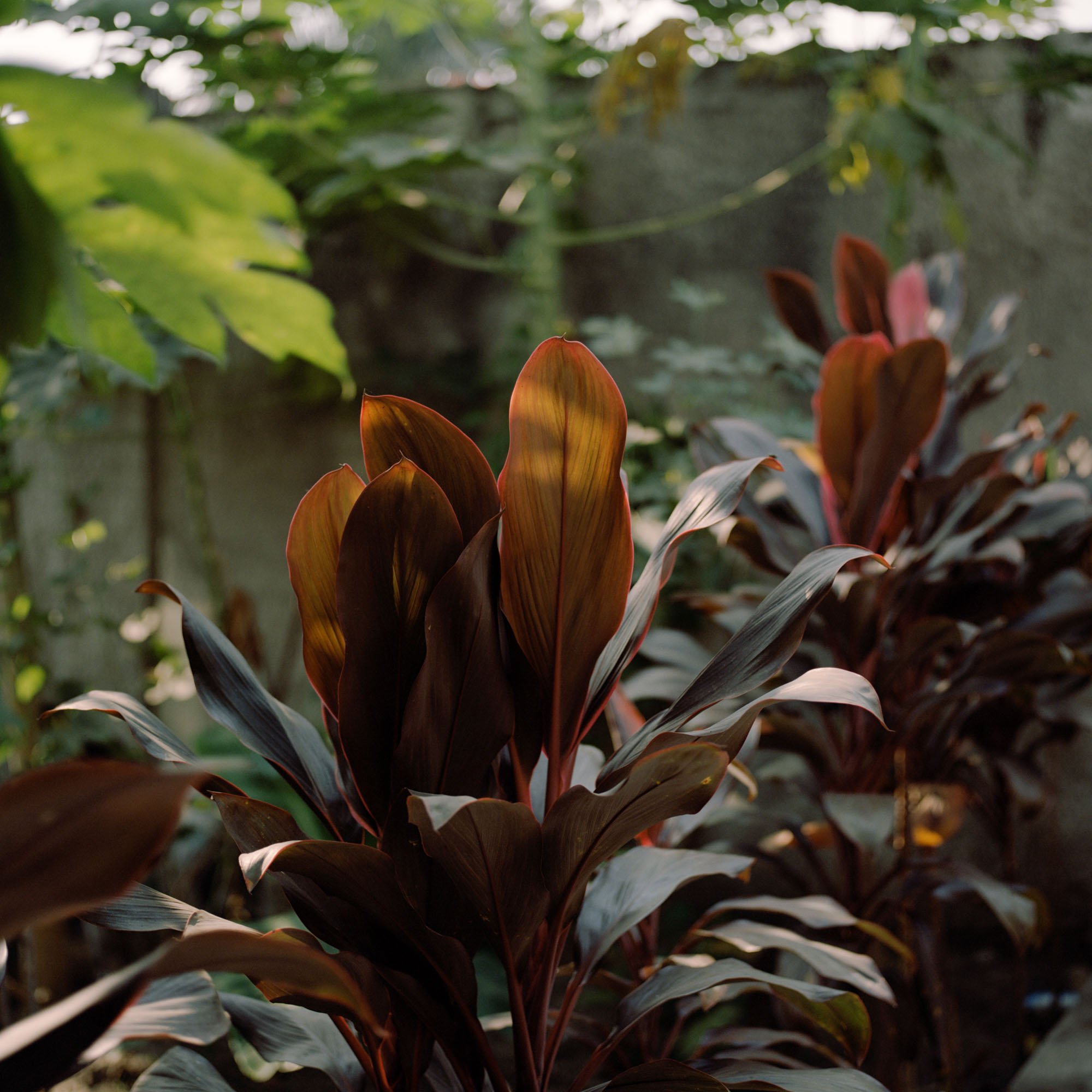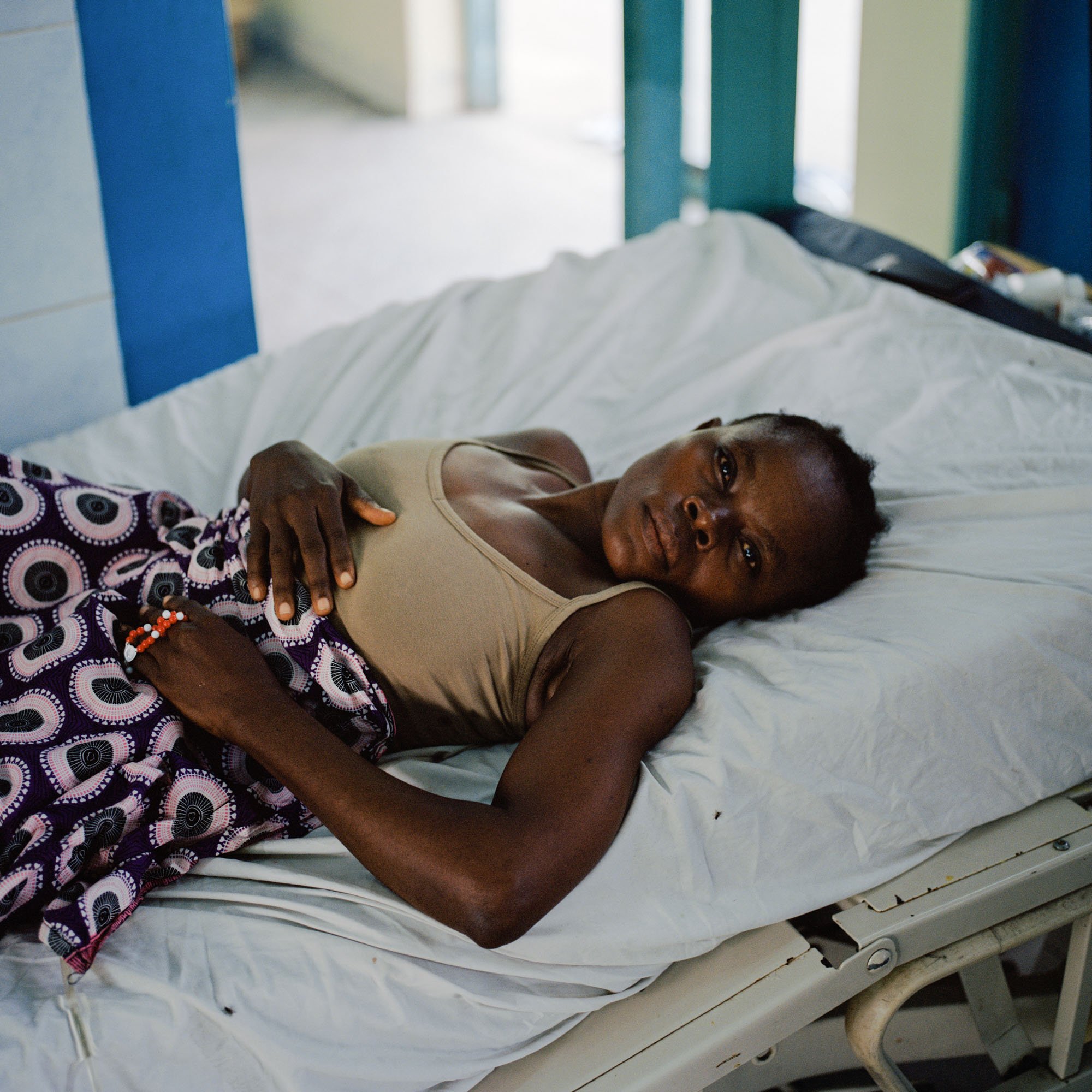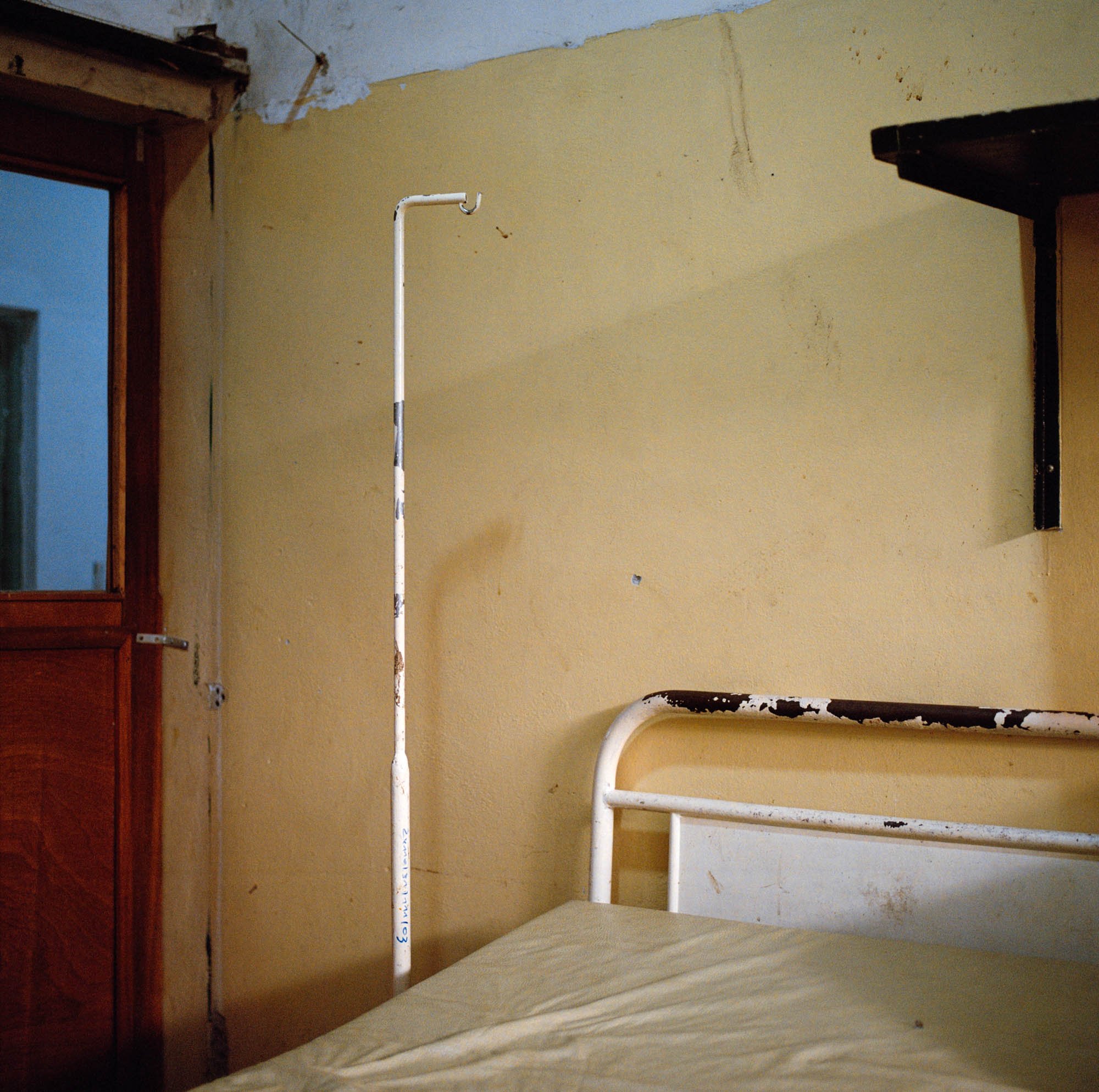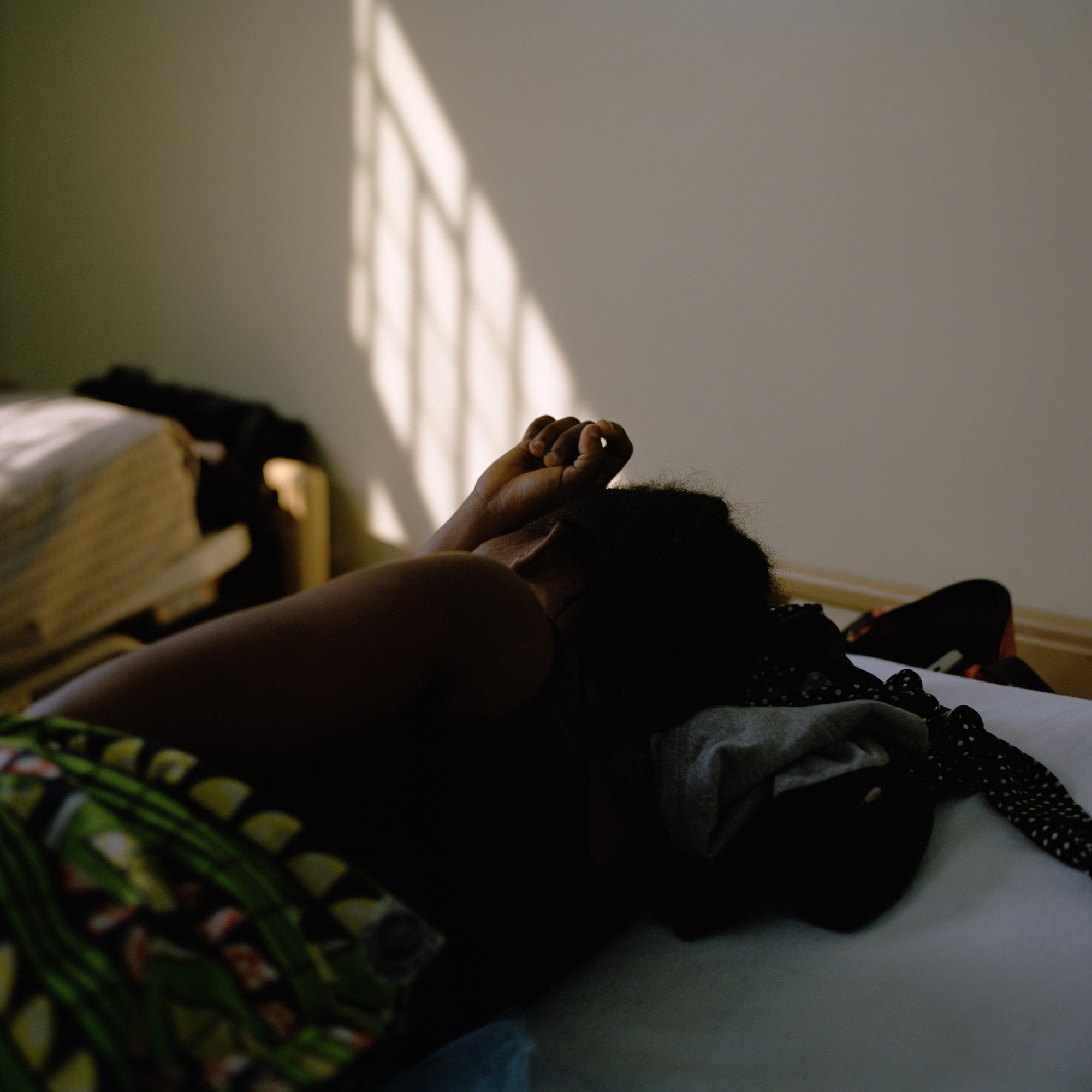Réparer
— 2019
En septembre 2015, je suis à Kinshasa en République démocratique du Congo, pour la première fois. J’y rencontre les sœurs de la maison de la Rose de Jéricho. Entre les messes et les prières, ces religieuses s’occupent de femmes qui attendent d’être soignées ou se reposent après une opération dans la clinique qui se trouve à quelques rues de là. Elles souffrent de fistules obstétricales, iatrogènes ou traumatiques, et je découvre alors l’ampleur de ce drame sanitaire sur le continent africain. La fistule est une lésion, une ouverture anormale entre les organes pelviens féminins. Elle apparait suite à une grossesse ou un accouchement difficile, des gestes médicaux accidentels ou des violences sexuelles, et provoque des incontinences chroniques. Les conséquences de ce phénomène entraînent exclusion et précarité. Malades, dans l’incapacité de travailler ou d’avoir des rapports sexuels, les femmes souffrantes sont bien souvent rejetées par leurs familles, leurs époux, et par toute la communauté. Selon l’Organisation mondiale de la Santé, plus de deux millions de femmes vivent avec une fistule non traitée en Afrique subsaharienne et en Asie. Elles sont parmi les plus pauvres et les plus vulnérables de la société. Profondément marquée par cette réalité, je retourne à la Rose de Jéricho en juin 2019 pour y partager la vie de Nzusi, de Rosette et de Mambuta, en attente de soins, et de Bernadette et des autres sœurs de la congrégation qui m’accueillent comme des mères. Dans la cour de la maison, tout est calme. Enoch, le fils de Nzusi, joue avec les chats sauvages, et les femmes tressent leurs cheveux des heures durant. Derrière les murs, Kinshasa jamais ne se tait. Le temps est rythmé par les coupures d’électricité intempestives et les deuils festifs innombrables qui animent les nuits de la ville tentaculaire. Jour après jour, j’écoute et ressens la douleur laissée par des enfants mort-nés, le corps qui ne retient plus rien et la solitude de celles qui se dévoilent devant moi. Du foyer aux couloirs de l’hôpital, je photographie leur combat intime et universel pour plus de dignité, la résilience qui les anime, et éprouve ce qui nous lie, toute mundele* que je suis, dans notre condition de femme.
* désigne une personne blanche en lingala
C’est un geste qui semblait bien loin de la pratique documentaire qui m’occupe — pourtant, dans cette lettre lue à Nzusi au milieu de la nuit, livrée au théâtre antique des Rencontres d'Arles et à ses spectateur·rices, j’ai pu dire autrement la violence, la douleur, la force et la sororité qui tisse Réparer. En voici la captation. Merci aux équipes artistiques et techniques des Rencontres pour cette formidable occasion de se mettre à nue. Merci pour vos regards et vos écoutes.
